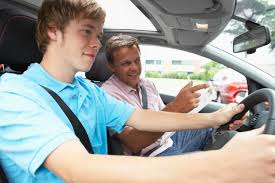
Understanding the Legalities of Eating and Drinking While Driving
When you’re behind the wheel, ensuring your full attention is on the road is paramount for your safety and that of others. In the UK, while there is no specific law that outright bans eating or drinking while driving, it’s crucial to understand how related regulations can affect you, especially as a learner driver.
What Laws Govern Eating and Drinking Behind the Wheel in the UK?
The Road Traffic Act and other driving regulations emphasise safe driving practices. Although eating or drinking while driving is not directly prohibited, actions that lead to distracted driving can result in legal consequences. If you’re found not in full control of your vehicle because you were eating or drinking, you could be charged with careless driving.
Regulations for Learner Drivers
For learner drivers, the expectations are even higher. As you’re still developing your driving skills, it’s essential to minimise any form of distraction. Our training at Smart Drive UK strongly advises against eating or drinking while driving to ensure you maintain optimal focus and control.
Penalties for Violating These Rules
If deemed distracted by eating or drinking while driving, you could face penalties ranging from fines to points on your licence. In severe cases, it could even result in a driving ban.
Smart Drive UK’s Approach to Legal Awareness
At Smart Drive UK, we integrate legal awareness into our training programmes. We emphasise the importance of understanding and adhering to driving laws, including those related to distractions such as eating and drinking. Our goal is to prepare you not just to pass your test but to become a responsible and safe driver for life.
The Impact of Distractions on Driving Performance
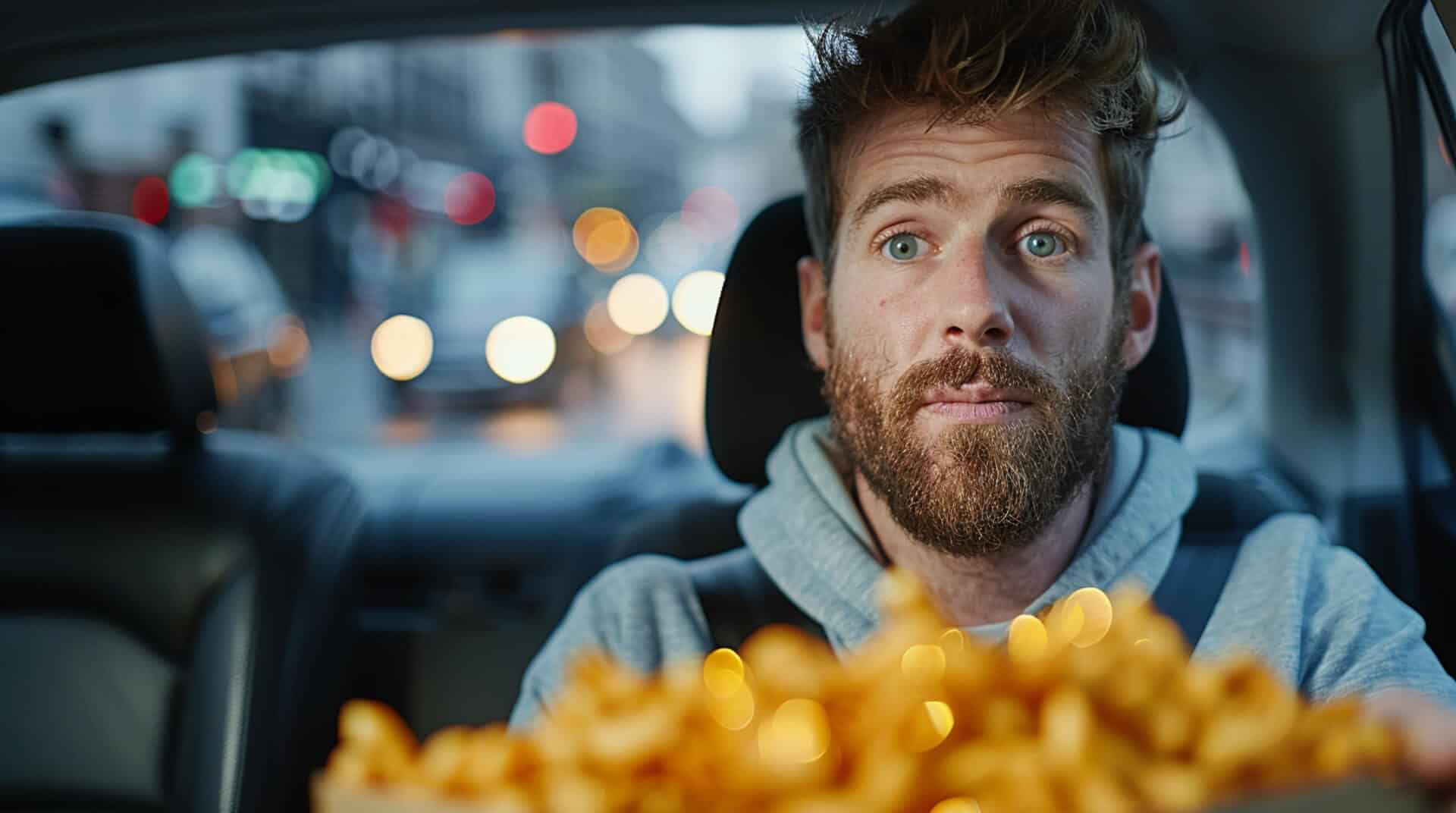
When you’re behind the wheel, maintaining focus on the road is crucial for your safety and the safety of others. At Smart Drive UK, we understand that distractions, particularly eating and drinking while driving, can significantly impair your driving performance. This section explores the types of distractions caused by these activities and how our training programmes are designed to help you minimise them.
Types of Distractions
Eating and drinking while driving can lead to three main types of distractions:
- Cognitive Distractions: Diverting your mental focus away from driving.
- Manual Distractions: Taking your hands off the wheel to handle food or drinks.
- Visual Distractions: Shifting your eyes from the road to manage your consumption.
These distractions can decrease your reaction time, reduce your awareness of the road, and increase the likelihood of accidents.
Training to Minimise Distractions
At Smart Drive UK, we emphasise the importance of distraction-free driving in our courses. Here’s how we help you minimise distractions:
- Practical Exercises: Incorporating scenarios, where necessary that simulate the temptations of eating and drinking while driving, teaching you how to manage such situations.
- Awareness Training: Educating you on the risks associated with distracted driving and the impact on driving performance.
- Focus Techniques: Providing strategies to maintain concentration and avoid distractions.
Emphasising Distraction-Free Driving
Our commitment to promoting safe driving habits includes a strong focus on eliminating distractions. By understanding the types of distractions and implementing our training techniques, you’re better equipped to keep your attention on the road, making you a safer, more responsible driver.
Safety Concerns and Risks Associated with In-Car Consumption
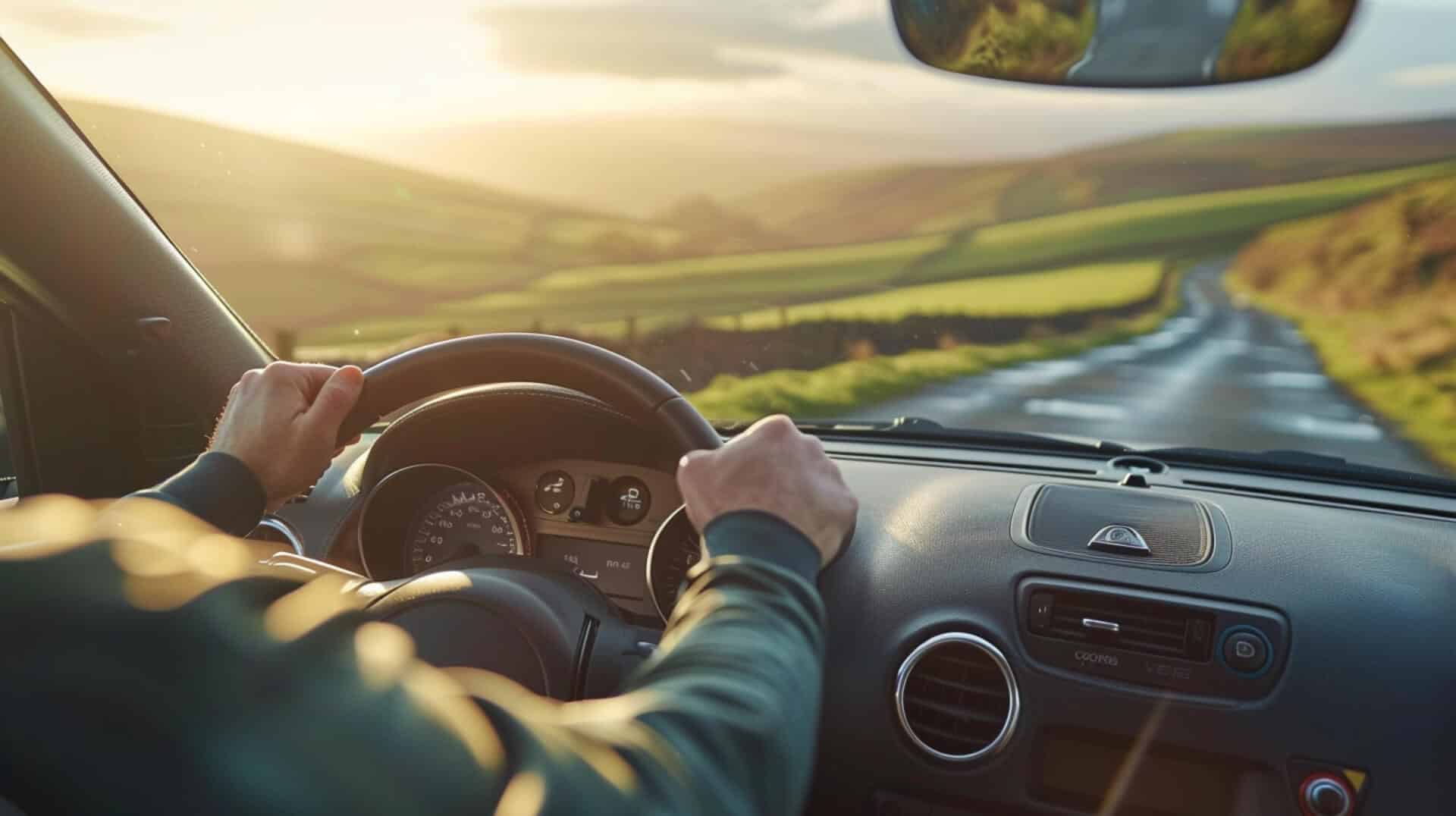
Eating and drinking while driving, seemingly benign activities, can significantly compromise road safety. At Smart Drive UK, we prioritise educating our learners on the inherent risks and the strategies to mitigate them, ensuring a safer driving experience for everyone.
Understanding the Risks
Eating and drinking behind the wheel can lead to:
- Decreased Reaction Times: Engaging in these activities can slow your response to sudden road changes or hazards.
- Reduced Awareness: Diverting attention to food or beverages can lead to missed traffic signals or unnoticed pedestrians.
Mitigating the Risks
To counteract these safety concerns, we advocate for:
- Pre-Drive Planning: Encouraging eating or drinking before or after your journey, not during.
- Scheduled Breaks: For longer trips, planning stops where you can safely eat or drink.
Preparing Learners for Real-World Challenges
By understanding the safety risks and employing effective strategies, our learners are better equipped to navigate the complexities of the road. Our commitment at Smart Drive UK is to prepare you not just for the driving test, but for a lifetime of safe driving.
Police Enforcement and Legal Consequences
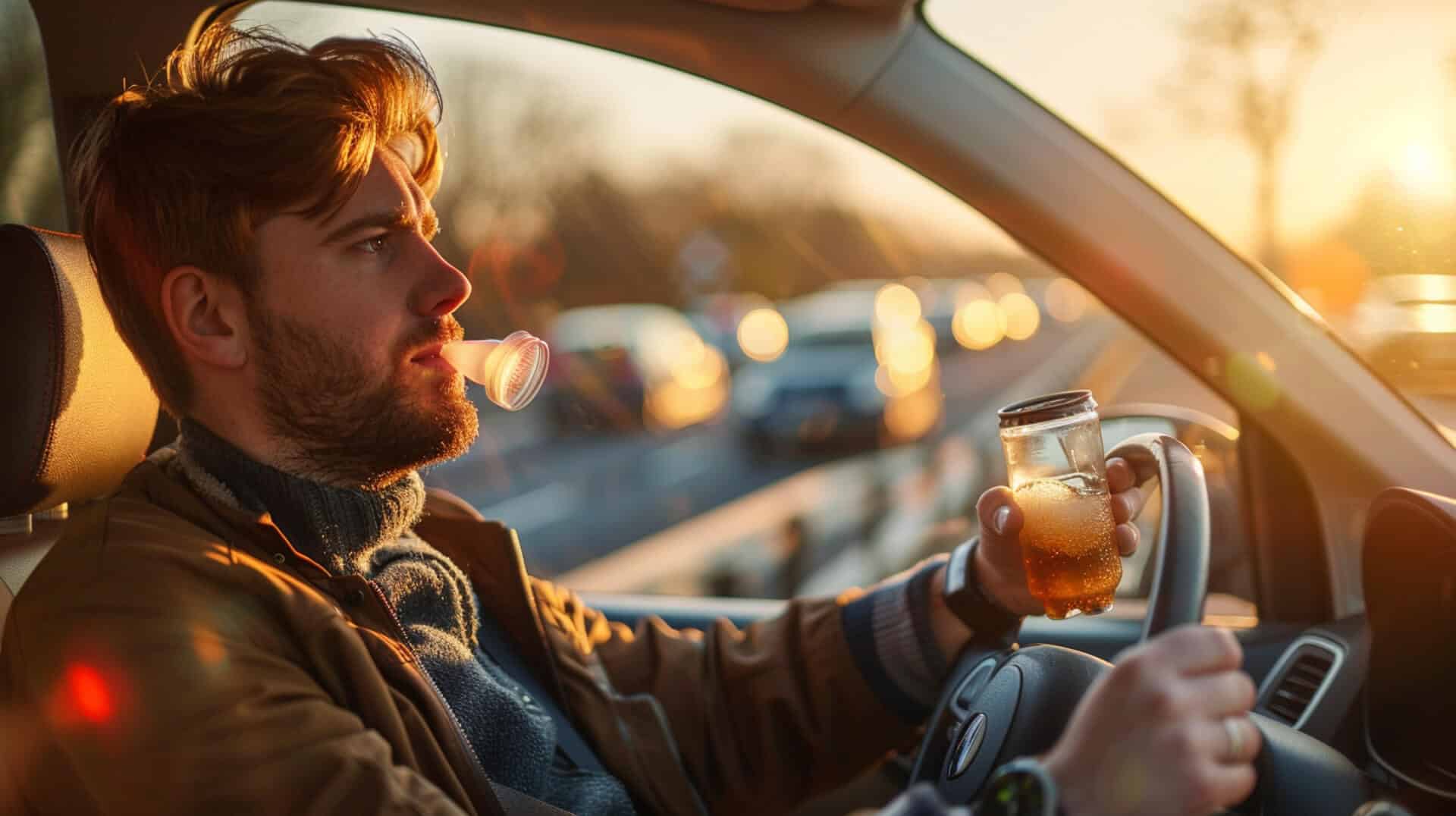
Understanding the role of law enforcement and the potential legal repercussions of eating and drinking while driving is crucial for all drivers, including learner drivers. At Smart Drive UK, we ensure our learners are well-informed about these aspects to foster responsible driving habits.
How Police Enforce Laws Against Eating and Drinking While Driving
UK police have the discretion to stop drivers they observe to be distracted by any activity, including eating or drinking. While there’s no specific law that outright bans eating or drinking behind the wheel, if this behaviour is deemed to impair your driving to the point of carelessness or dangerous driving, you could face penalties.
Officer Discretion in Penalising Distracted Driving
Officers assess situations on a case-by-case basis. If your actions are considered to cause a lack of control or attention, you may be charged with careless driving. This demonstrates the importance of always maintaining full control and focus while driving.
Immediate and Long-Term Consequences
Being caught driving carelessly due to in-car consumption can lead to:
- Fines
- Penalty points on your licence
- In severe cases, a driving ban
Impact of Eating and Drinking on Driving Performance
Eating and drinking while driving can lead to distractions, but it’s also important to consider how what you consume can affect your physical state. For instance, heavy or sugary foods might cause drowsiness, while hydration levels can significantly impact concentration and reaction times.
Dehydration and Drowsiness: The Silent Impediments
Dehydration can lead to decreased alertness and slower reaction times. Similarly, drowsiness, potentially exacerbated by certain foods or the act of eating itself, can impair your driving ability. Both conditions can subtly undermine your performance, making it harder to respond to road conditions or hazards promptly.
Managing Health Needs for Safe Driving
To ensure safety, we recommend:
- Hydrating Well Before Driving: Ensure you’re well-hydrated before starting your journey to avoid the need to drink while driving.
- Choosing Light Snacks: If you must eat before driving, opt for light snacks that won’t induce drowsiness.
Techniques to Stay Focused
To assist drivers in maintaining their concentration without resorting to eating or drinking, we recommend:
- Mindful Driving Practices: Encouraging drivers to engage fully with the driving process, keeping their minds on the road and hands on the wheel.
- Scheduled Breaks: Planning for regular stops on longer journeys allows drivers to eat, drink, and rest, reducing the temptation to do so while driving.
Leveraging Technology
Technology can play a significant role in managing in-car consumption distractions:
- Use of Apps: There are applications designed to remind drivers to take breaks, helping manage the need for food or hydration without compromising safety.
- Hands-Free Solutions: Encouraging the use of hands-free devices for necessary communication, minimising manual distractions.
The Role of Planning and Preparation
Effective planning is key to avoiding distractions:
- Pre-Drive Checks: Ensuring you have consumed sufficient food and water before starting your journey can eliminate the need for in-car consumption.
- Route Planning: Knowing where and when you’ll take breaks can help you manage your needs without compromising safety.
Impact on Insurance Premiums
Eating and drinking while driving can be seen as risky behaviours by insurance companies. If these actions lead to accidents or driving offences, they could result in increased insurance premiums. It’s crucial to understand that maintaining a clean driving record is one of the best ways to keep your insurance costs down.
Emergency Situations and Special Considerations
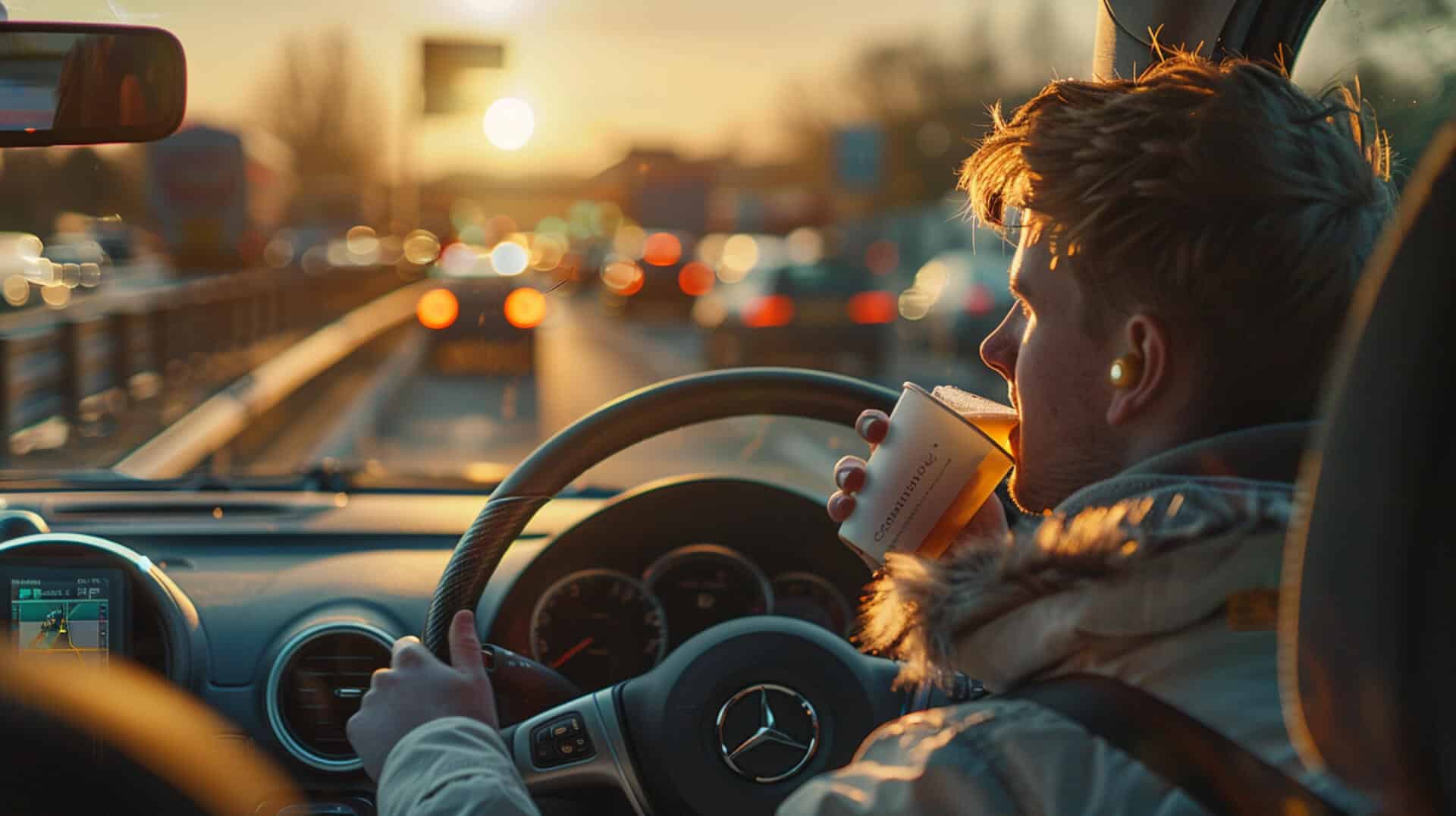
Driving requires preparedness for any situation, including emergencies that might necessitate eating or drinking while on the road. At Smart Drive UK, we understand the importance of ensuring safety without compromising the needs of drivers, especially those with medical conditions. Heres how we address these concerns.
Handling Medical Conditions
For drivers with medical conditions that may require immediate nutrition or hydration, planning is key. We advise:
- Carrying Necessary Items: Always have water and snacks that are easy to consume and wont cause distractions.
- Informing Passengers: If you’re driving with someone, let them know how they can assist in case you need to eat or drink urgently.
Smart Drive UK’s Commitment to Lifelong Safe Driving Habits
Our commitment to instilling lifelong safe driving habits is at the core of our training programmes. We provide our learners with the knowledge, skills, and mindset needed to make safety-conscious decisions, not just for the driving test but for a lifetime of driving. By focusing on the development of these critical skills, we aim to prepare our learners for the many challenges they will face on the road, ensuring they are equipped to drive safely and responsibly in all situations.
Contact Us for Comprehensive Driving Training
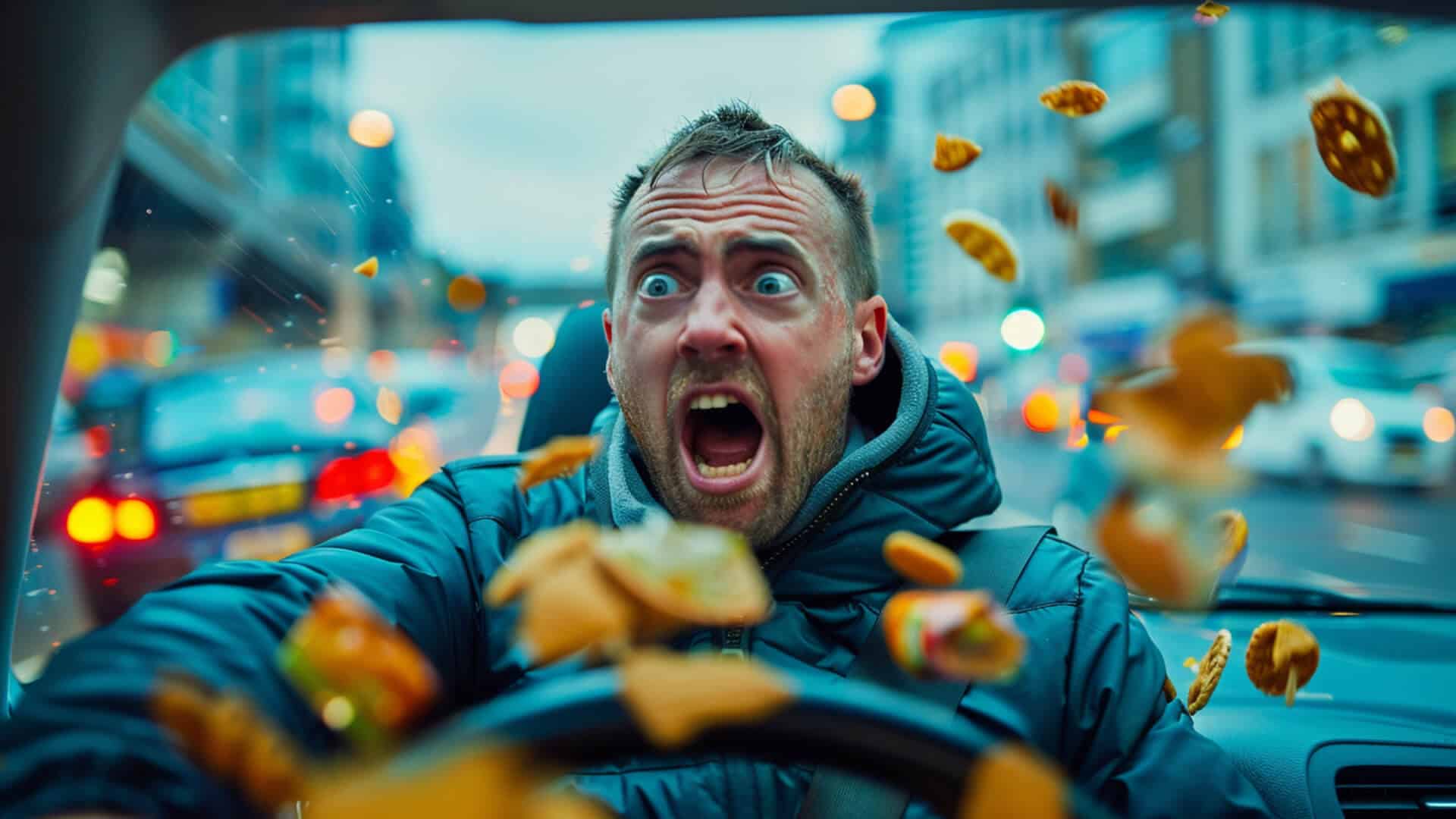
At Smart Drive UK, we’re dedicated to providing top-quality driving education and training tailored to meet the unique needs of each learner. Whether you’re a beginner or a full licence holder looking to enhance your driving skills, we’re here to support you every step of the way.
How to Reach Smart Drive UK
For more information about our services or to enrol in one of our driving courses, you can contact us through:
- 01903 691002: Reach out to our friendly customer service team for immediate assistance.
- admin@smartdriveuk.co.uk: Send us your queries, and we’ll get back to you with detailed responses.
- www.smartdriveuk.co.uk: Visit our website for comprehensive information on our courses, instructors, and more. You can also use our online contact form for convenience.
Customised Training Packages
We offer a variety of training packages designed to cater to different learning needs and goals, including:
- Beginners Courses: For those new to driving, focusing on the fundamentals.
- Block Bookings: For learners looking to book multiple lessons at a discounted rate.
- Pass Plus: For drivers aiming to improve their skills and potentially lower insurance premiums.
Supporting Learners to Become Safe, Responsible Drivers
Our commitment to road safety and responsible driving is reflected in our comprehensive curriculum, which covers:
- Legal and Safety Focus: Emphasising the importance of adhering to traffic laws and safe driving practices.
- Driver Distraction Awareness: Teaching strategies to minimise distractions, including eating and drinking while driving.
- Health and Performance: Highlighting the impact of physical well-being on driving capabilities.
Why Choose Smart Drive UK
Choosing Smart Drive UK for your driving education means opting for a driving school that:
- Prioritises Safety: Our courses are designed with your safety and the safety of others on the road in mind.
- Offers Personalised Training: We understand that each learner is unique, and we tailor our training to suit your individual needs.
- Has a Proven Track Record: With years of experience and a history of success, we’re a trusted name in driving education.
At Smart Drive UK, we’re committed to helping you become a confident, competent, and safe driver. Contact us today to start your journey towards driving excellence.



